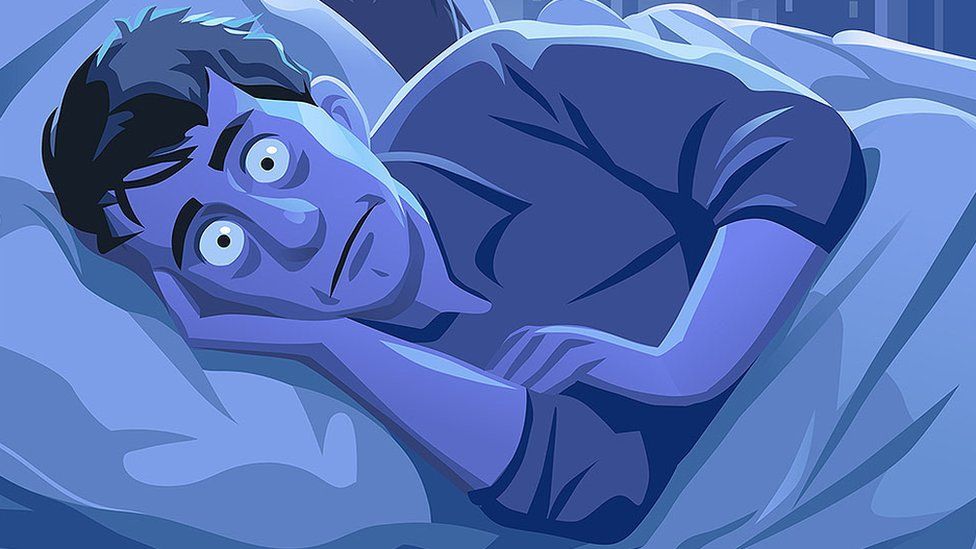Said nicotine does indeed interfere with sleep. Because nicotine stimulates the neurological system, consuming it before bed or throughout the day can keep you awake. Daytime fatigue and nighttime waking are likely caused by how nicotine disturbs REM sleep and causes withdrawal symptoms.
What is nicotine?
The most popular sources of nicotine are cigarettes, vape pens, e-cigarettes, nicotine patches, and gum. Your risk of developing cancer, heart disease, lung disease, diabetes, stroke, and other chronic illnesses is known to increase.

Also, it is addictive. Nicotine is swiftly transported to the brain after ingestion, whether through smoking or another method. Dopamine levels in the body are briefly raised as a result.
Dopamine is the reward neurotransmitter, therefore when smoking is connected with pleasure, the behavior is reinforced. Long-term and repeated exposure can also modify brain circuits, changing how people learn and respond to rewards.
How smoking affects sleep
Did you know that smoking can affect your ability to sleep? Potential issues include snoring, sleep apnea, insomnia, and fragmented sleep.
The main culprit for the sleep problems brought on by smoking cigarettes, cigars, and pipes is nicotine, the primary psychoactive component of tobacco. Some believe that smoking causes them to fall asleep.
This is conceivable since nicotine has been shown to reduce anxiety and promote relaxation. However, nicotine also possesses stimulant qualities that are thought to cause insomnia and other possible sleep issues linked to smoking.
Ways nicotine affects sleep.

Waking up during the night
Short-term withdrawal symptoms from nicotine consumption can lead you to wake up in the middle of the night. This is because shortly after nicotine has been ingested through smoking or vaping, it attaches to receptors in the brain and other parts of the body, causing the release of neurotransmitters like dopamine.
However, the effects of nicotine on your brain and the levels of nicotine in your blood quickly wear off, which makes you crave more nicotine, and also wakes you up and keeps you from going back to sleep.
The dopamine release results in rewarding and pleasurable experiences, which repeatedly promotes the behavior of smoking. Nicotine usage regularly raises the chance of addiction. This, via the method outlined above, can result in chronic insomnia and disturbed sleep.
Tiredness
Consuming nicotine can make you weary throughout the day because it throws off your circadian rhythm, which is brought on by frequent nighttime awakenings due to withdrawal symptoms.
More specifically, as the night goes on, your body’s supply of nicotine diminishes, leading to withdrawal symptoms like irritation, cravings, an increase in hunger, and sleep difficulties. In the long run, smoking diminishes the supply of dopamine, which encourages smokers to smoke more. Smoking urges the brain to turn off its system for making dopamine.
Makes you more alert
It has been shown that nicotine stimulates the sympathetic nervous system, which releases hormones like adrenaline that can increase alertness and make it more difficult to fall asleep. Additionally, compared to non-smokers, smoking and vaping raise your blood pressure over time and increase your risk of hypertension and cardiovascular illnesses.
Smoking for an extended period hardens the arteries, making blood flow through them more difficult. Your heart must work harder to pump blood and distribute it to other organs.
Your heart rate will increase, your arteries will be in danger, and your risk of developing a stroke or any heart issue will rise if your blood vessels are under too much strain.
Difficulty falling asleep

Because nicotine stimulates the neurological system, using it can make it difficult to fall asleep. Numerous smokers claim that nicotine relaxes them and soothes their nerves, leading them to believe that smoking lessens tension and anxiety.
However, because nicotine has stimulant qualities that heighten tension and alertness, this sensation of rest is just fleeting.
Furthermore, as nicotine levels fall in the early morning hours, your brain in nicotine withdrawal may wake you up to state your cravings.
You might feel anxious, and your sleep may be disturbed.
Disrupts the most restful part of sleep (REM)
According to studies, smoking increases alertness while decreasing REM (rapid eye movement) sleep, the deepest period of sleep during which your body releases chemicals and endorphins to treat stress and discomfort.
They discovered that smokers had higher amounts of stress hormones and adrenaline while they slept compared to non-smokers, which affects the ability of T-cells, an immune cell type, to fight against infections.
Sleep deprivation and chronic inflammation can interact in a vicious cycle. Stress hormone levels rise at night due to inflammation, making sleep more difficult. Inflammation can also increase due to inadequate sleep.
Sleep deprivation
Additionally, nicotine raises many additional health concerns that may impair sleep.
Cancers of the throat, breast, gastrointestinal tract, pancreas, and other organs are also connected to chronic smoking and lung cancer.
Additionally, nicotine may impact your digestive system, resulting in gastroesophageal reflux disease and peptic ulcer disease, which causes ulcers to form in the stomach. Chronic discomfort might make it difficult to sleep and do other everyday tasks.
Breathing difficulties
Smoking can block the airways in the lungs, inflame the nose and throat, and create inflammation, making breathing harder to breathe while you sleep.
The following respiratory issues contribute to smokers’ poor sleep quality:
Snoring
Because tobacco products and e-liquids include irritating compounds, smoking may raise your risk of snoring. As a result, the airflow becomes more turbulent via the constricted airways, causing the tissues in the area to vibrate and produce the unwelcome sound of snoring.
Sleep apnea
Sleep apnea may also be exacerbated by smoking or vaping, a condition that causes frequent pauses in breathing as you sleep. According to studies, smokers are more prone than non-smokers to apnea occurrences and sleep interruptions.
The soft palate and tongue muscles in your throat relax more when you sleep, which can restrict the airway, impair breathing, and reduce the amount of oxygen in your blood.
When you are in the middle of sleep, the brain initiates a physiological response to reopen the airway, which may cause you to awaken.
Asthma
Smoke exposure might aggravate asthma symptoms. Smoking irritates the airways, resulting in them being inflamed, constricted, and packed with sticky mucus, increasing your risk of getting cold or developing allergies. Your airways constrict, swell, and generate more mucus, disrupting sleep by making breathing difficult and causing asthma attacks characterized by coughing and shortness of breath.
Lung cancer
Chromium, formaldehyde, and smoke or nicotine vapor are all known to cause cancer.
They affect the respiratory system by causing daily inflammation and DNA damage.
The DNA of lung cells can be damaged by persistent lung inflammation, which can cause the cells to grow uncontrollably and become cancerous.
Conclusion
Smoking or vaping nicotine exposes you to a highly addictive substance that disrupts your sleep cycle.
Addiction, cravings, anxiety, elevated blood pressure, inflammation, respiratory ailments, and other health problems are just a few detrimental effects it can have on the body and the mind.

jay
Self proclaimed cigar expert. I've been smoking since 2010. I've practically lived at a cigar lounge from 10am to 10pm and trying every new cigar that came out for years.

